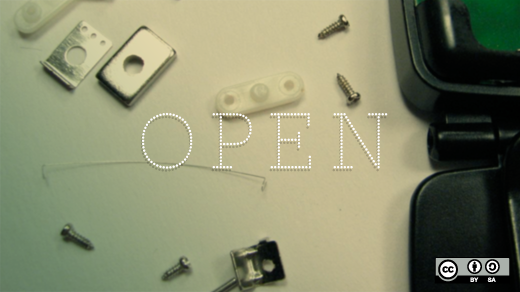Open source software and open source best-practices have become truly ubiquitous in the business world. Software used to be the new frontier, but open source software can be found leading up to the frontier, at the frontier, and beyond. My experience at CGI America 2012 (a US-focused subgroup of the Clinton Global Initiative) confirmed this.
The focus areas of CGI America span the gamut of challenges and opportunities facing America today: clean electricity and efficiency, clean fuel and transportation, early childhood education, entrepreneurship, financial inclusion, housing recovery, reconnecting youth, small business, STEM education, wellness, and workforce development drew more than 800 CEO-level attendees from across the country to share ideas and to make commitments of concrete progress.
I was invited to attend the working group focused on Advanced Manufacturing. Our group of 70+ executives from the public, private, and research sectors took on the strategic (and existential) questions of American manufacturing in the 21st century along the topics of innovation, competitiveness along the supply chain, environmental and economic sustainability, exports, and maintaining/developing a skilled workforce. I don't have much day-to-day experience with Advanced Manufacturing, but I was familiar with the work of Eric Von Hippel generalizing open source best practices to manufacturing and industrial processes. He's done such a great job channeling me that I figured I could channel him for a few days.
Much to my surprise (and delight), open source was not a new idea at CGI, CGI America, or even the Advanced Manufacturing working group. Numerous speakers during the plenary session mentioned projects using open source across the many topic areas already mentioned. At the plenary lunch I met Douglas Woods, President of the Association for Manufacturing Technology (AMT) who told me that that AMT was sponsoring not one, but two open source projects to increase standardization and innovation across their membership. Really?
Well, yes and no. I checked out MTConnect, the home page for the technology and standards projects sponsored by AMT. The fact is that there are published reference documents that can be freely downloaded, and there is code that can be freely downloaded, read, and redistributed from github, but to get to either the documents or the code one must register (it's free) and one must agree to abide by their terms of service (by registering). That is not altogether bad: the website of the Open Source Initiative also demands that users abide by its own terms of service, albeit without the up-front registration requirement, and asking for positive assent to abide by open source terms is not contrary to the Open Source Definition.
Having registered, I looked at the documents and briefly browsed the code repository. It is a start, as so many other projects were, at the beginning, a start. The aspirations of the project are bold, as they should be. As a former OSI Board Member, I would have been really happy to have seen the project select a specific OSI-approved license for their code and/or documentation, but that has not yet been done. This is probably the most important next step, and one that will define for many years to come the community of users that will nurture and sustain the software. I am sure they will deliberate carefully, and they will weigh the arguments for and against various licenses in part based on how those licenses have worked for situations relevant to the members of the AMT. That will take time.
But looking at the bigger picture, the manufacturing community is studying very seriously all the success that the open source community has created: superior innovation (aka competitive advantage), interoperability (aka market opportunity), quality (aka cost and risk management), and long-term sustainability. I think open source software has a lot to offer, not just in terms of helping them make better use of technology, but make better use of the whole ecosystem in which they operate. I look forward to seeing what develops over the next year!
In the mean time, I'll be checking out MakerFaire, which is coming to Raleigh on June 16th. The Makers may not have the capitalization of most Advanced Manufacturing companies, but their creativity is unmatched, and may yet prove helpful in advancing industry as well as the imagination.






Comments are closed.